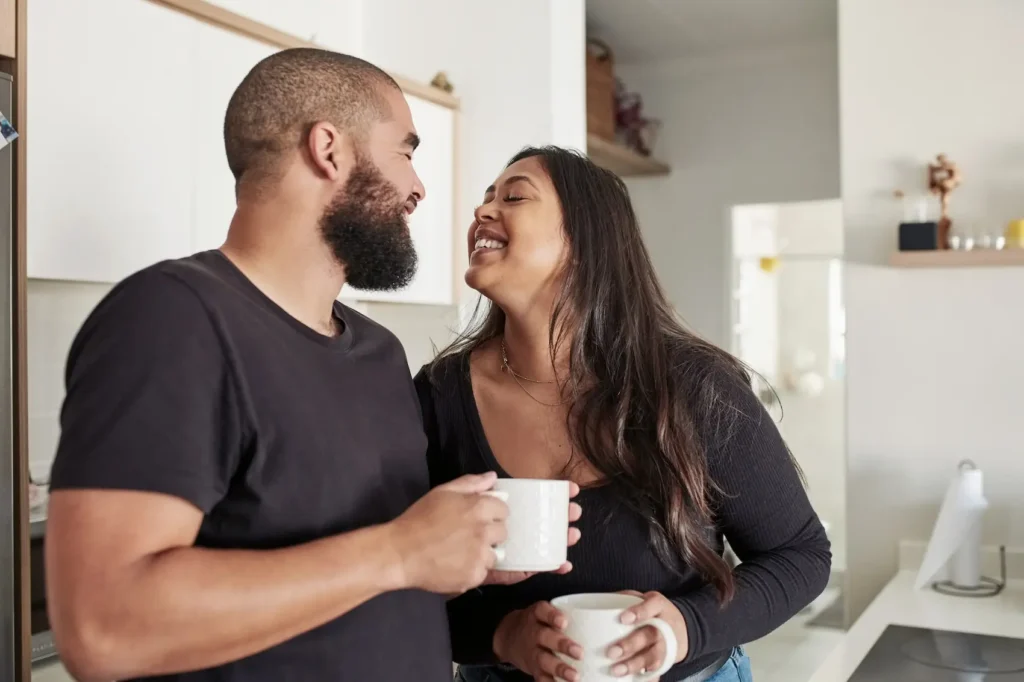Many couples enter therapy with a shared commitment to improve their relationship. For these couples, therapy focuses on addressing issues, strengthening the connection and working collaboratively for positive change.
But what if you arrive for therapy and feel like you’re already mentally packing your bags, while your partner wants to work together to unpack them? You might be already contemplating separation or divorce, feeling disconnected and discouraged from the therapy process. If you identify as the “leaning out” partner, you may feel hopeless or emotionally checked out. Ending the relationship might seem like a path to liberation and a fresh start, or perhaps a painful but necessary farewell to the past. Alternatively, you might feel ambivalent about ending the relationship but lack the motivation or energy to make improvements.
On the other hand, you may be saying “I want this to work,” while simultaneously feeling worried, conflicted, or uncertain about how to move forward. As the “leaning in” partner, you may be actively pursuing your partner, making demands or seeking apologies and explanations, or you might have become passive and withdrawn. For these couples, traditional couples therapy may not only be ineffective but can also become extremely frustrating for both partners.
To address this challenging dynamic, Bill Doherty of the Doherty Relationship Institute developed Discernment Counseling, a process designed to help couples on the verge of ending their relationship gain clarity and confidence about their next steps.
What Outcomes Can You Expect from Discernment Counseling?
In Discernment Counseling, if you are the “leaning in” partner, you want to continue the relationship, hopefully with a willingness to look at how you may have contributed to where the relationship is now. If you are the “leaning out” partner, you are considering separation or divorce but have not yet made a final decision. In this process, both partners’ feelings and experiences are validated and supported. The therapist remains neutral, not advocating for or against the relationship.
What does discernment counseling look like?
Discernment Counseling is a short-term process, usually spanning one to five sessions. By the end, you and your partner will decide on one of three paths forward:
Maintain the status quo in the relationship
Move towards separation or divorce
Commit to working on the relationship through couples therapy and other resources, with divorce temporarily off the table
Difference Between Discernment Counseling and Couples Therapy
Discernment Counseling differs significantly from traditional couples therapy, although some therapists may be trained to offer both services. In couples therapy, both of you meet with the therapist to collaboratively address your issues. In Discernment Counseling, the intensive work occurs in separate individual conversations with the therapist. These discussions are designed to help each of you gain clarity and confidence regarding the relationship and its future direction. Discernment Counseling sessions also include time for each of you to share your reflections about your individual conversations with each other.
In couples therapy, the therapist works with both of you to establish goals that target specific issues, such as healing from betrayal, navigating challenging life transitions, or managing conflict. Couples therapists not only help partners understand their dynamics but also support them in implementing changes to enhance their relationship. In Discernment Counseling, however, the aim is not to initiate immediate changes. Importantly, the focus of Discernment Counseling is not on fixing the relationship, but on helping both of you become more certain about what to do next—whether that means packing, unpacking, or setting the metaphorical bags aside for now.
What Does “Success” Look Like in Discernment Counseling?
A successful outcome of Discernment Counseling is characterized by both of you gaining a deeper understanding of your relationship and recognizing your individual contributions to its challenges. This clarity will empower both of you to make informed decisions about your future, whether you choose to work on the relationship or part ways.
When you conclude Discernment Counseling and decide to pursue couples therapy, both you and your partner will have a clear understanding of your relationship dynamics and what each of you needs to work on individually. For these couples, therapy can provide an opportunity to explore issues more deeply and work toward repairing the relationship.
It’s important to note that choosing to separate or divorce after Discernment Counseling does not signify failure. Success in this context means that both of you have gained valuable insights into your relationship. Ultimately, whether you decide to unpack your shared experiences together or pack up and move on, the Discernment Counseling process equips you with the clarity and confidence needed for your next steps.








